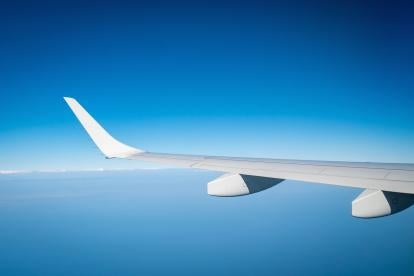






On Wednesday, March 25, the United States Senate passed by unanimous vote the Coronavirus Aid, Relief and Economic Security Act (CARES Act). The Cares Act marks the third round of economic stimulus in response to the outbreak of the coronavirus disease 2019 (COVID-19). Under Title IV of the CARES Act (also known as the Coronavirus Economic Stabilization Act of 2020 or the Act), Senators approved $500 billion in federal assistance to severely distressed sectors of the economy as part of the larger $2 trillion stimulus package. The approved programs include $61 billion to the aviation sector as follows:
$17 billion in loans and loan guarantees will be available for businesses critical to the national security of the United States, and $454 billion will be available to backstop the Federal Reserve’s emergency lending facilities.
The Act provides much-needed liquidity support to the US aviation industry, an important segment of the US economy that is directly responsible for more than 750,000 jobs and that indirectly supports more than 10 million additional jobs. At the same time, the Act includes many of the safeguards for the federal government that were built into the post-9/11 support measures provided to airlines.
This advisory will focus on the specific portions of the Act that will affect businesses in the US aviation sector. A summary of these provisions is set forth below.
The Act must now be passed in the US House of Representatives, which is expected to occur (without further changes to the Act) by voice vote on Friday, March 27. If passed by the House, Congress will send the Act to President Trump for signature. In the coming days, the Treasury Department will be releasing proposed regulations setting forth the administrative procedures that apply to the loan and loan guarantee program and the application requirements for payroll protection grants. Under the Act, the Treasury Secretary is required to coordinate with the Secretary of Transportation in carrying out the Act's provisions with respect to air carriers. Although funds for the program have been directly appropriated to the Exchange Stabilization Fund (the Treasury Department's emergency reserve fund), the Act does not provide a specific framework to implement its programs, so additional guidance is needed.
Two oversight offices are established under the Act: (1) the Office of the Special Inspector General for Pandemic Recovery (to be organized within the Treasury Department); and (2) the Congressional Oversight Commission (to be organized within the legislative branch). The Special Inspector General for Pandemic Recovery — who is to be appointed by the President with the advice and consent of the Senate — is responsible for conducting, supervising, and coordinating audits and investigations of the making, purchase, management, and sale of loans, loan guarantees, and other investments made by the Treasury Secretary under the Act. The Congressional Oversight Commission is charged with overseeing the implementation of the Act's programs by the Treasury Department and the Federal Reserve.
Moreover, the Treasury Secretary has to comply with robust disclosure obligations under the Act, including, but not limited to: (1) providing reports to Congress within seven days after entering into a loan/loan guarantee transaction and publishing such report on the Treasury Department website; (2) every 30 days while a loan or loan guarantee is outstanding; (3) publishing a summary of the transactions the Treasury Department has entered into under the program; and (4) offering testimony to Congress on a quarterly basis regarding the Treasury Department's obligations under the Act and the transaction it has entered into thereunder.
Following stringent governmental travel restrictions put in place to curb the spread of COVID-19, demand for air travel has fallen to historic lows. As a result, on top of significant cuts to domestic air travel, most airlines around the world have cancelled up to 75–100 percent of international routes. The International Air Transport Association (IATA) recently predicted that global losses to airline revenue caused by COVID-19 could reach $252 billion, increasing its previous estimate of $113 billion in COVID-19 related losses. Together with the approval of governmental relief measures rolled out to airlines in Australia, Brazil, China, Denmark, France, India, Italy, New Zealand, Norway, South Korea, Sweden and Taiwan, passage of the Act will contribute significantly to the $200+ billion in governmental support that is needed for the industry to survive the COVID-19.